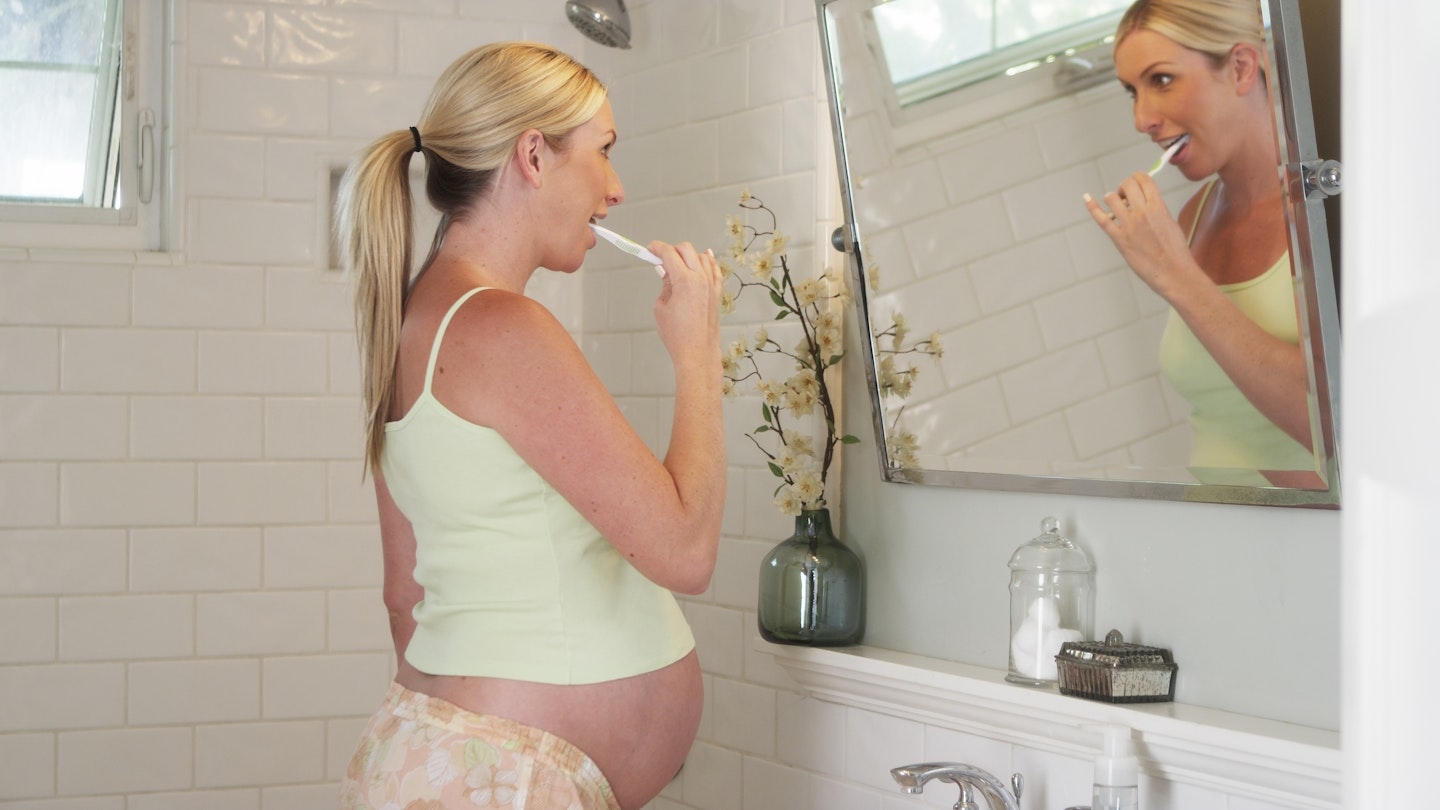More than 90% of pregnant women suffer with gum problems during pregnancy. Read our top tips for looking after your teeth
Pregnancy tiredness and morning sickness are well known, but gum problems aren’t often talked about, despite being so common.
During pregnancy, increased hormone levels boost blood circulation, which can cause red, swollen or bleeding gums and increase the likelihood of plaque build-up. Expectant mothers should also be mindful that the baby’s first teeth begin to develop around three months into pregnancy.
Read our top tips for looking after your teeth during pregnancy, from Dr Sameer Patel, one of the UK’s leading dental experts.
- Be Aware of Changes in your Gums
Regular periodontal examinations are very important, as pregnancy causes hormonal changes that put you at increased risk of pregnancy gingivitis. Pay particular attention to any changes in your gums such as: tenderness, bleeding or swollen gums, and visit your dentist before the problem develops.
- Floss and Brush Thoroughly
It might sound obvious, but being less than vigilant with your oral hygiene routine could lead to the onset of gingivitis (gum disease) or periodontitis (a more serious form of gum disease). This is caused when plaque extends beyond the gum line and leads to infection, but this can be prevented by keeping your mouth and teeth as clean as possible. Your dentist will be able to advise on the best course of action to keep your teeth and gums healthy, and will inform you of the frequency of hygienist appointments you should make during both pregnancy and while breastfeeding.
- Eat a Healthy, Balanced Diet
Your baby's first teeth begin to develop about three months into pregnancy. Healthy diets containing dairy products, cheese, and yoghurt are a good source of essential minerals which are great for baby's developing teeth, gums, and bones. Avoid sugary snacks. Sweet cravings are common during pregnancy, however, keep in mind that the more frequently you snack, the greater the chance there is of developing tooth decay.
- Be Mindful of Mouthwash
Dr Sameer explains that pregnant women should not be surprised if they notice their gums bleeding when brushing, but he advises against using a mouthwash such as Corsydl: ‘Popular mouthwash Corsodyl can lead to staining of the teeth and antibacterial resistance if used for a long time. Pregnant ladies should only use this as a way to prevent gum disease if prescribed by their dentist’.
- Adopt the ‘Four Minute Rule’
Dr Sameer advises brushing teeth for 4 minutes in both the morning and evening, which will help to reduce the build-up of even the smallest amounts of plaque. This is crucial because during pregnancy smaller amounts than usual can create early gum disease.
- Try to Avoid Antibiotics
Antibiotics are commonly prescribed during pregnancy, but they must be chosen carefully. Some antibiotics are OK to take during pregnancy, while others are not. For example, tetracyclines — such as doxycycline and minocycline can discolour a developing baby's teeth.
- Switch to a Softer Toothbrush
Pregnancy hormones can cause your gums to swell and become inflamed, which makes them bleed more easily when you brush or clean between your teeth. Brushing regularly will help improve the tenderness; use a soft brush, and choose a toothpaste for sensitive teeth if your gums are tender. Try not to rinse after brushing, as this will reduce the desensitising effect of the toothpaste.
- Steer Clear of Teeth-Whitening Kits and Toothpastes
These products contain peroxide, which may be harmful to your baby. The oxidation of your teeth is the process that causes them to whiten and may be harmful to the tissues and cells of the foetus. While no studies have currently documented any harm caused to the foetus, pregnancy is such a crucial time for the development of a baby that many dentists still warn against teeth whitening while pregnant.
- Avoid Dental Treatments During The First Trimester
Dental treatments during the first trimester and second half of the third trimester should be avoided as much as possible as a precaution. These are critical times in the baby's development and it's simply wise to avoid procedures that could in any way influence the baby's growth or development.
- Avoid Dental X-rays During Pregnancy
If X-rays are essential (such as in a dental emergency), your dentist will use extreme caution to safeguard you and your baby. Advances in technology have made X-rays much safer today than in past decades but it is advisable to avoid any exposure to radiation if possible.
- Ensure Your Diet Includes Plenty of Calcium and Vitamin C
Vitamin C, also known as ascorbic acid, is essential for bone growth and repair and keeping your teeth strong. Taking a parental vitamin and calcium supplement should provide you with enough of these nutrients.
Dr Sameer Patel is Clinical Director at award-winning practice Elleven ellevendental.com
